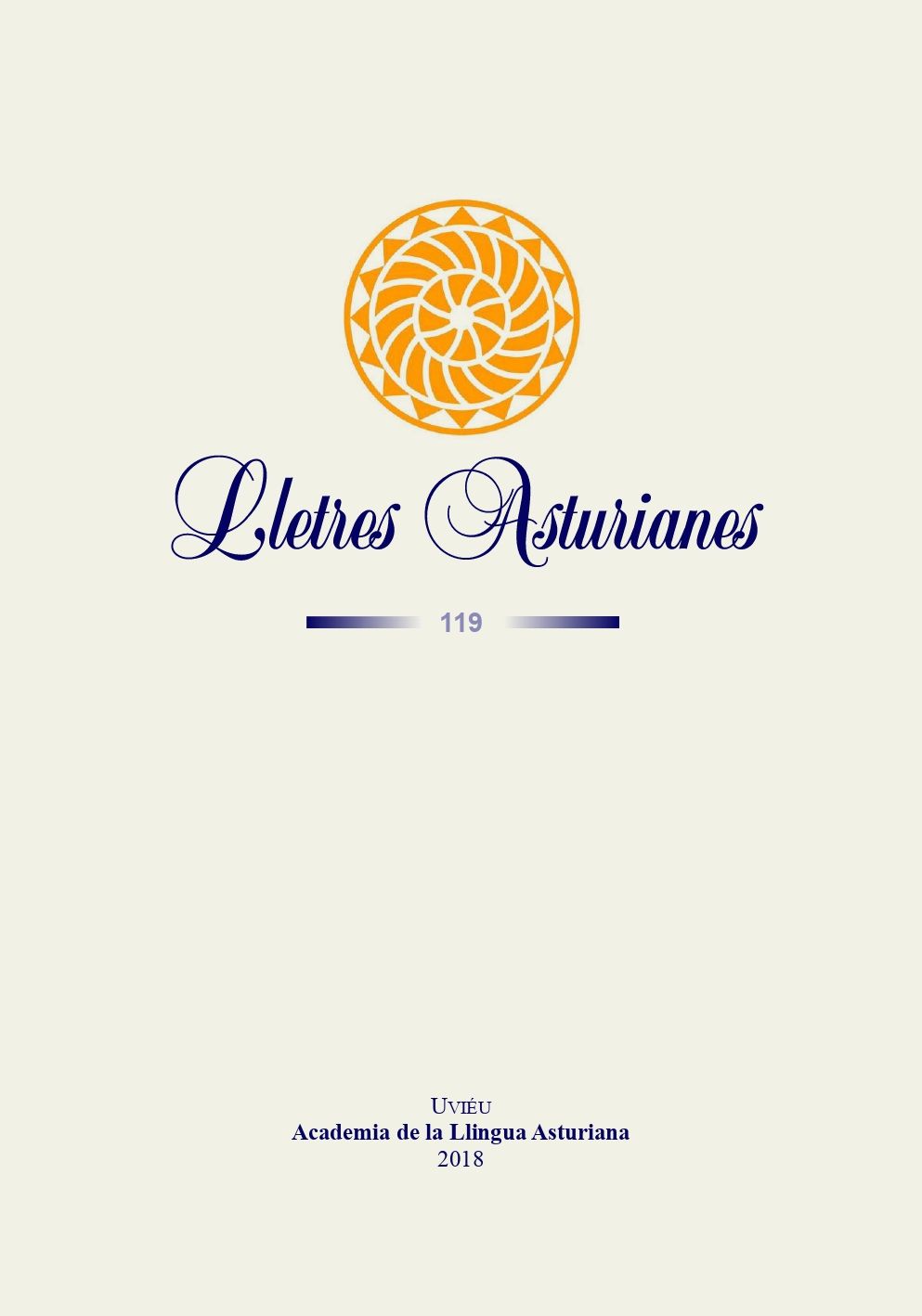Abstract
At the last turn of the century, when her grandmother was about to turn 100, New-York-based Asturian philologist and writer Paquita Suárez Coalla felt an urgent need to recover her memories and to leave a trace of her roots. To do this, she interviewed her relative, alongside a group of women from the area with similar ages and experiences. The result was published in 2001 under the title La mio vida ye una novela [My Life Is a Novel], which constitutes the main item of our corpus. The aim of this paper is twofold: on the one hand, analyzing the thematization of female knowledge in Suárez Coalla’s book, exploring how women who insist that they know nothing or very little due to their lack of formal education nevertheless prove to have a kind of knowledge that is very useful for their everyday life. Furthermore, they display an outstanding ability to make gender-conscious analyses, both of the past that they recollect and of their narrative present. On the other hand, this paper approaches the formal aspect of life narratives, with the intention of proving that the dynamics between the interviewer and the interviewees results in a challenge to the traditional boundaries of the genre. Through a subtle interaction with the person that compiles the stories –who is very rarely visible in the text– these women adopt a (more or less consciously) transgressive politics of location, and they situate themselves on hybrid territory. They combine actively elements that are constitutive of different subgenres, such as auto/biography, collaborative life writing, relational life writing, oral history, testimonio, and autoginography. Thus, they contradict with their actual praxis the ideas of resignation and lack of agency that explicitly permeate most of their testimonies.
References
AMORÓS, Celia (2014): Salomón no era sabio. Madrid, Fundamentos.
BERGER GLUCK, Sherna & Daphne PATAI (1991): Women’s Words. The Feminist Practice of
Oral History. Nueva York y Londres, Routledge.
BOSCH, Esperanza, et al. (2013): La violencia contra las mujeres. El amor como coartada.
Barcelona, Anthropos.
CALASANTI, Toni (2008): «A Feminist Confronts Ageism», en Journal of Aging Studies 22:
-157.
COUSER, G. Thomas (2004): Vulnerable Subjects. Ethics and Life Writing. Ítaca y Londres,
Cornell University Press.
CRENSHAW, Kimberle (1989): «Demarginalizing the Intersection of Race and Sex: A Black
Feminist Critique of Antidiscrimination Doctrine, Feminist Theory and Antiracist Politics»,
n’University of Chicago Legal Forum 1: 139-167.
EL TAPÍN, Redacción (2017): «La escritora Paquita Suárez Coalla llega de Nueva York a la biblioteca de Las Regueras», n’El Tapín. Periódico de Las Regueras. 14 de xunetu de 2017
<http://lasregueras.eltapin.com/noticia/940/la-escritora-paquita-suarez-coalla-llega-denueva-york-a-la-biblioteca-de-las-regueras> [Accesu 4 ochobre 2017].
GENETTE, Gérard (1997): Paratexts: Thresholds of Interpretation. Cambridge y Nueva York,
Cambridge University Press.
IBÁÑEZ, Melanie (2014): «Estómagos vacíos. La miseria de las mujeres vencidas en la inmediata postguerra», en Vínculos de Historia 3: 302-321.
LEJEUNE, Philippe (1994): «La autobiografía de los que no escriben», en ‘El pacto autobiográfico’ y otros estudios. Valencia, Universidá de Valencia: 313-414.
LORENTE, Miguel (2001): Mi marido me pega lo normal. Agresión a la mujer: realidades y mitos. Barcelona, Ares y Mares.
MARTÍNEZ, Mª Ángeles (2013): Violencia de género en las áreas rurales. “¿Adónde puedo ir
yo…?” Un estudio en Asturias. Madrid, Ministeriu d’Agricultura, Alimentación y Mediu
Ambiente.
RUBIN, Gayle (1975): «The Traffic in Women: Notes on the Political Economy of Sex», en Toward an Anthropology of Women, Rayna R. Reiter (ed.). Nueva York, Monthly Review
Press: 157-210.
SANGSTER, Joan (1994): «Telling Our Stories: Feminist Debates and the Use of Oral History»,
en Women’s History Review 3.1: 5-28.
SARDAR, Ziauddin & Boris VAN LOON (2005): Estudios culturales para todos. Barcelona,
Paidós.
SMITH, Sidonie & Julia WATSON (2010): Reading Autobiography. A Guide for Interpreting Life
Narratives, 2nd ed. Mineápolis y Londres, Universidá de Minnesota.
STANFORD FRIEDMAN, Susan (1998): «Women’s Autobiographical Selves: Theory and Practice», en Women, Autobiography, Theory. A Reader, Sidonie Smith & Julia Watson (eds.).
Madison, University of Wisconsin Press: 71-82.
STANTON, Domna C. (1998): «Autoginography: Is the Subject Different?», en Women, Autobiography, Theory. A Reader, Sidonie Smith & Julia Watson (eds.). Madison, University of
Wisconsin Press: 131-144.
SUÁREZ COALLA, Paquita (2001a): «La herencia de las mujeres», en La mio vida ye una novela. Uviéu, Trabe: 9-12.
– (2001b): «Los testimonios», en La mio vida ye una novela. Uviéu, Trabe: 13-16.
– (2001c): La mio vida ye una novela. Uviéu, Trabe.10
SUÁREZ COALLA, Paquita (2007): Para que no se me olvide. Nueva York, Editorial Campana.
VARELA, Nuria (2017): Cansadas. Barcelona, Ediciones B.

